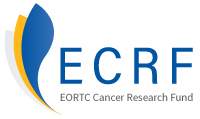MISSION
Formed in 1962, the Group aims to challenge, re-define and develop standards of care in all controversial areas of breast cancer diagnosis and therapy, including rare conditions such as male breast cancer. The Group researches long-term outcomes and follows all patients throughout their lives.
PRACTICE CHANGING RESEARCH
Breast cancer is the most commonly diagnosed cancer in women and the most common cause of cancer death in women worldwide (1 in 6 cancer deaths)1. According to WHO, in 2020, there were 2.3 million women diagnosed with breast cancer 2. Incidence rates vary across countries. In a developed country setting, about 1 in 8 women will be diagnosed with breast cancer in their lifetime [1].
Early-stage breast cancer is defined as disease confined in the breast (lump of size up to 5cm) and / or regional lymph nodes, without distant metastases (spread of cancer to other organs). With treatment, women with early breast cancer have a very good prognosis (chance of survival). The primary treatment (core treatment) for early breast cancer is surgery. Reducing the chances of recurrence and therefore increasing the survival rate of these patients, means additional treatment (chemotherapy and /or radiotherapy) after surgery. These additional treatments bear toxicities for the human body and researchers aim to find ways of reducing/limiting these adverse effects and thus increasing their quality of life, without affecting their chances of survival. The following three EORTC Breast Cancer Group clinical trials are examples of reducing treatment without compromising patients’ survival rates (very good prognosis) but having a significant increase in their quality of life.
LATEST PUBLICATIONS
Want to read in detail our scientific findings on specific tumour type?
Search through our comprehensive list of EORTC published articles to date.



